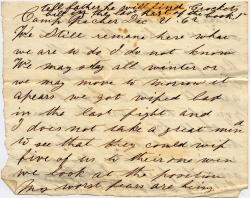The 17th Maine Regiment Association's medal proclaims the long service -- August 1862 until June 1865 -- and the many engagements -- Fredericksburg to Appomattox -- of the infantry regiment.
In the introduction to his book Red Diamond Regiment: The 17th Maine Infantry, 1862-1865, William B. Jordan Jr. wrote, “The 17th Maine may not have always fought the most effectively nor the most savagely but they frequently stood where the fighting was the fiercest and faced the heaviest fire.” He further observed, “The 17th easily laid claim to the honor of being one of the best combat units in the Union army.”
According to a report by the Maine Adjutant General, of the 1,371 men who served in the 17th Maine, 370 died -- 12 officers and 195 enlisted men in action or from wounds, 4 officers and 159 enlisted of disease, 31 in Confederate prisons. This casualty rate of twenty-seven percent was the second highest of all of the regiments serving from Maine during the war. (Only the 1st Maine Heavy Artillery suffered more casualties.)
When the war ended, the 17th, along with other regiments, marched back to Washington, D.C. and participated in the Grand Review of May 23-24, 1865. At that point, many army units began to be mustered out. Those whose enlistments were not up were transferred to other regiments. Units of the 17th Maine -- along with members of the 20th Maine -- took trains and steamers north to Portland. The Eastern Argus of June 9 reported that upon the arrival of the veterans in Portland, a large number turned out “to receive husbands, sweet-hearts, brothers, sons and fathers.” The two regiments—accompanied by city officials, fire companies, platoons of policemen, and a delegation of the city's Robert Burns club in Highland costume—marched to City Hall, where they were provided a sumptuous banquet.






















